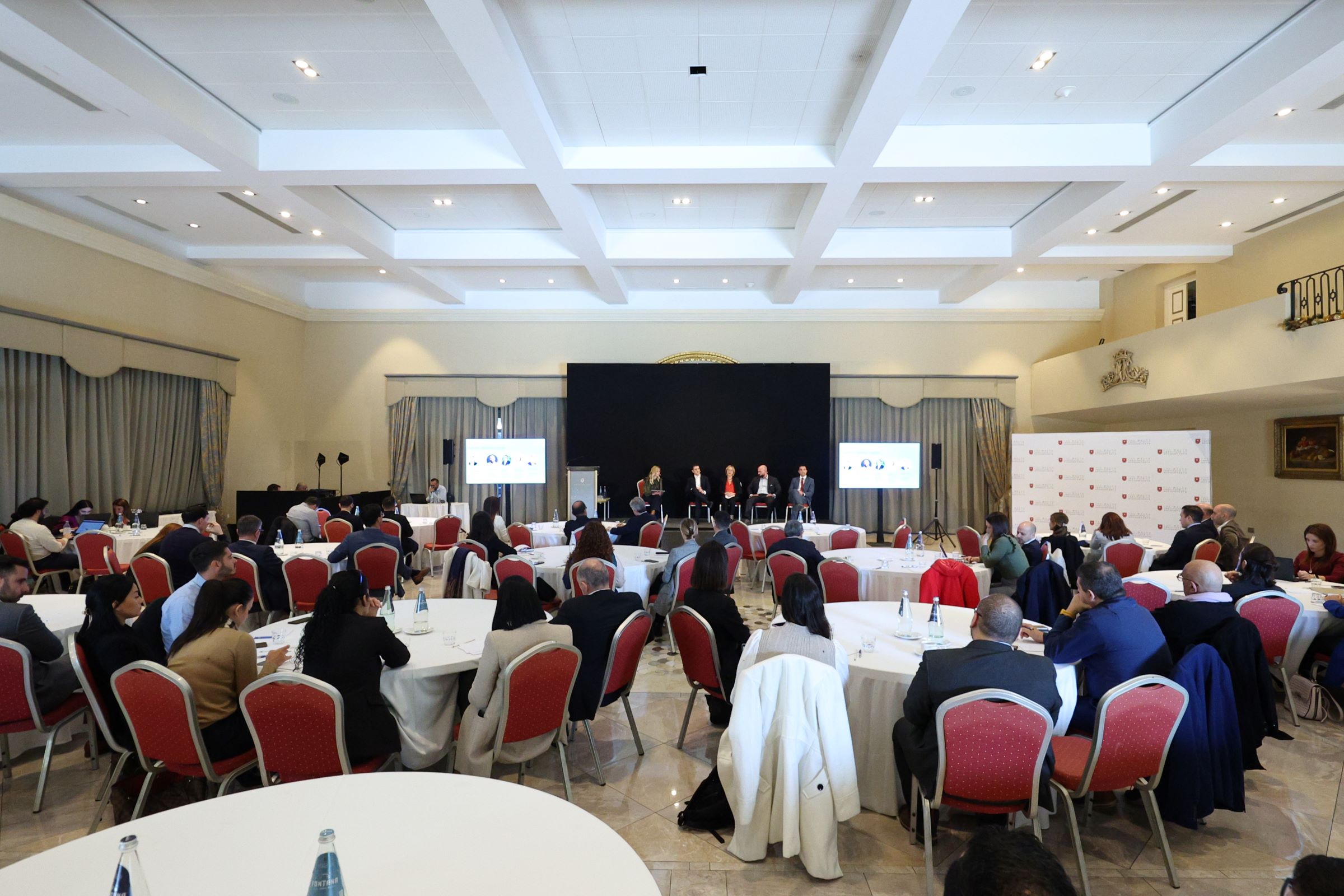Businesses need to think innovatively and break conventional boundaries to remain competitive in the face of widespread changes, particularly in the field of taxation. This was the important message echoed through the key speeches and exchanges during the Malta Institute of Accountants’ (MIA) Annual Tax Conference.
The conference touched upon various tax reforms emanating from both European and national level, including various elements of corporate tax, sustainability reporting disclosures as well as changes in VAT and Customs formalities. The agenda for the conference was developed by the institute’s Direct and Indirect Taxation Committees.
In her welcome speech, MIA CEO Maria Cauchi Delia said that the present fiscal changes sought to lead a global shift towards transparency, simplification, and consistency. She detailed the institute’s efforts throughout the past year to engage with stakeholders in Malta and abroad, respond to consultation documents related to major reforms and provide training to members.
On the other hand, MIA President Mark Bugeja highlighted the stronger collective push towards enhanced compliance and enforcement. He called on accountancy professionals and businesses to “take the upcoming changes in their stride and seek to transform such challenges into new opportunities for growth.”
A number of panel discussions delved into detail and provided insights into impending changes related to direct and indirect taxation.
With regards to indirect taxation, the panel addressed issues related to the Intrastat Declarations, Recap Statements, Budget Implementation Bill, Central Electronic System of Payment information (CESOP), and the applicability of the newly introduced 12 per cent VAT Rate. The discussion on direct taxation focused on the Unshell Directive and its requirements, as well as on the Subject to Tax Rule (STTR), this being one of the key components of Pillar two. A separate discussion addressed the expectations in terms of required documentation and timelines with regards to Transfer Pricing.
The conference also included an insightful exchange on where tax-related issues are likely to become relevant to disclosures under the Corporate Sustainability Reporting Directive (CSRD). This discussion addressed issues such as the Carbon Border Adjustment Mechanism (CBAM) and the Emissions Trading System (ETS), while also making reference to the Blue Economy and how this presents further opportunities for the country.
The event was also addressed by Joseph Caruana, Commissioner for Tax and Customs, who provided details on the transformation of Malta’s fiscal systems, which had the objective of sustaining public financing through efficient collection of taxes while ensuring increased attractiveness and competitiveness of the Maltese jurisdiction through reduced bureaucracy.
Christopher Magri, Director General Customs Operations, gave details of how Customs Department was investing in technology and artificial intelligence to allow it to focus on the highest risk and ensure collection of taxes and duties which are due, while enhancing its role as protector of the Maltese and European frontier.
The Tax conference was also addressed by the Minister for Finance and Employment Clyde Caruana who urged firms to seek innovative ways to increase their productivity, this being the way forward in the way of constant changes pushed from the European Union and beyond.
His Opposition counterpart, Shadow Finance Minister Jerome Caruana Cilia, focused on the need to enhance and improve Malta’s attractiveness while demonstrating a commitment to fairness which ensures that local businesses, regardless of size or industry, have equal opportunities to thrive.
db Foundation raises €8,419 for Karl Vella Foundation with MasterChef Malta Charity Dinner
These events form part of the db Foundation's ongoing commitment to supporting vulnerable members of society through impactful initiatives
Residential property prices rise by 5.7% in first quarter of 2025
The new figures show continued growth in Malta’s property sector
Youth4Entrepreneurship Gozo 2025: Youth invited to propose innovative digital solutions
The initiative aims to empower youth to become active contributors to Gozo’s development by addressing local challenges






